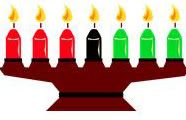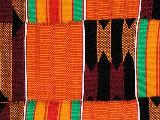

Without our hardworking, dedicated volunteers, PBS would surely not be the wonderful site that it is. All week we will give you an overview of what our volunteers do and why.
We asked our volunteers to finish this sentence:
I volunteer at PBS because__________.
Elizabeth R. (esjro): PBS has given so much back to me: new friends, laughter, and (most importantly) great books!
Rebecca and Keith (rocky1): I volunteer at PBS because I want others to find as much joy in reading as I do.
Robin K. (jubead): it is not what you give but what you get in return. PBS gave me wonderful friends and memorable times so volunteering allows me to give back to the membership and site.
Giselle R. (Giselle): I would like to give back a little of what I got when I joined, great books, great guidance and of course the many wonderful friends I have made in the process.

Alisa F. (Greycat133): I love this site and what it does. If my efforts can help bring people to love PBS as much as I do, then it is time well spent!
Shelia R. (MamaDragon3): it’s a simple way to give something back to a site I love and a service I adore. PBS supplies me with two of life’s biggest necessities–good books and good friends.
Sarah (Delos): I like to give back to the place hat has given me so many books, therefore, enjoyment; to try to make it even better for future swappers.
Hunter S. (Hunter1): in helping others, I am also helping myself. I have a strong desire to help others and when I satisfy that desire by volunteering, it’s a win/win for both me and those I help. In addition, I have a strong desire to learn and by volunteering, I ultimately learn more about PBS and its members.
 Troy D. (tdaulton): it satisfies my OCD monster.
Troy D. (tdaulton): it satisfies my OCD monster.
Mary S. (MaryMary): I love this site and believe it’s one of the best sites on the internet (and helping out keeps it that way)! I enjoy helping people and want other members’ time here to be as enjoyable as mine is.

Anna B. (classicana): I volunteer for all of the above reasons, PLUS, it helps me ignore the thing I hate most — housework! and especially vacuuming. (Nature abhors a vacuum, and so do I).
 Linda B. (herbalhorse): there is something about this site that is unique and I love being part of it. Besides the obvious benefits of getting some wonderful books, I have enjoyed the interaction with members from all walks of life, each with their own point of view. Some have become friends, some not, but all are valuable.
Linda B. (herbalhorse): there is something about this site that is unique and I love being part of it. Besides the obvious benefits of getting some wonderful books, I have enjoyed the interaction with members from all walks of life, each with their own point of view. Some have become friends, some not, but all are valuable.
Lou B. (justloux): I volunteer at PBS because it’s FUN to find/correct/edit book data & images, being very like a digital puzzle to be completed/fixed.
Also because doing all this scratches my OCD itch. (LOL)
Emily E. (EmilyKat): I volunteer at PBS because it isn’t just a book exchange. It is a community. I love the feeling of being in a family that is all as book obsessed as I am.
 Diane G. (icesk8tr): I enjoy helping other members get addicted to the best bookswapping site there is, and because of the friendships I have made here. PBS is more than just books, it is a great community!
Diane G. (icesk8tr): I enjoy helping other members get addicted to the best bookswapping site there is, and because of the friendships I have made here. PBS is more than just books, it is a great community!
Kathy H. (Nellie): No wait. I volunteer at PBS because really, I just love books.
Tammy (CrystalRose): I volunteer at PBS because I enjoy the site and want to make it enjoyable for others.
Michael G. (doctorslime): Its nice to return the favor. It’s fun to meet cool people. Because if I didn’t I’d feel guilty, about all the cool books they have gotten me, and I didn’t get them anything in return.
 Ronda K. (cakirkette): I volunteer at PBS because I enjoy the site so much myself, I want to help other people enjoy it too.
Ronda K. (cakirkette): I volunteer at PBS because I enjoy the site so much myself, I want to help other people enjoy it too.
Cyn C. (Cyn-Sama): I volunteer because I enjoy helping other members, and because I am happy to give back to a site that has brought me so much joy.
Stephanie: I volunteer at PBS as my way of saying “thank you” for such a wonderful site that has allowed me to indulge my love of reading!

D. G. (riahekans): I volunteer at PBS because I need to give something back to a place that’s given me so much joy!
Patty P. (Patouie):I volunteer at PBS because it seems like a natural extension of some of the things I love in life. Books… I love books, along with the world of computers. And I’ve grown to feel a sense of community here. I also am one of those odd ducks who reads the computer manual (and likes it!) so becoming familiar with the help docs was a given. The big plus is that the help docs here are so well-written on this website. I “get” the logic, at least most of the time. So tour guiding — helping other members sort through a problem, or find their way around the site — wasn’t a big leap.When I started doing book data edits, that was another extension of things I already do. Proofreading comes pretty easily. My odd-duckyness also expresses itself in caring where the comma goes. In a good way — I love the written word. And then I learned how to work with book cover images — what a joy! I’d never cropped an image before in my life before I started volunteering here. Now I can wantonly manipulate them, if I choose. Bwah ha ha!I volunteer at PBS because it fits well with who I am, because of the people, and because I’ve learned so many new things here, such as how to work with images. I love the people, love the laughs and hugs, and love how it stretches me.
Jennifer K. (Fungurl1979): I love helping others and this site has made my life better.
Christina B. (christinaholly): I love this site, and want others to as well.

Geri (geejay): I want to give back a bit of what I’ve received and still recieve. Friendship, fun and most important help and companionship from people with similar interests.
Sianeka: I volunteer at PBS because I love PBS. I volunteer at PBS because I like to help out.
Amanda S. (ABCatHome): I volunteer at PBS because I have truly found my niche…helping people and feeding my book addiction! I love being an integral part of a site where Admin Team truly cares about their membership and has worked diligently to make it the best book club ever!
Kim C. (kontessa): I believe we should serve in our communities and I love the PBS commity, so this is how I honor it.
Margaret (Yellowdogs1): I want to help others and also I want to give just a little bit back for all that I have received here.
Tiffany K. (tiffanyak): I volunteer at PBS because it is a great online community that has done so much for me, and it’s nice to be able to give something back. Also, I like being able to help those who need it, in any way I can.

June E. (junie): I really love to help members out and am happy to have made so many good friends here.

katzpawz: I volunteer here at PBS because of all the joy I have received as a member. It seems really “right” to be giving back as a volunteer here.
Wendy H. (donkeycheese): I love the site and the people!
 Virginia H. (holtzy): I believe in the power of reading and books. It is wonderful to help others, but I’m especially thrilled that so many children have received books from our wonderful, generous members. I also love the camaraderie of all of you, the friendships, encouragement and just tons of fun and laughing out loud until your stomach hurts times. I also volunteer at PBS because I think this site is like a little piece of book heaven and I want everyone else to enjoy and appreciate it as much as I do.
Virginia H. (holtzy): I believe in the power of reading and books. It is wonderful to help others, but I’m especially thrilled that so many children have received books from our wonderful, generous members. I also love the camaraderie of all of you, the friendships, encouragement and just tons of fun and laughing out loud until your stomach hurts times. I also volunteer at PBS because I think this site is like a little piece of book heaven and I want everyone else to enjoy and appreciate it as much as I do.

Kay M. (maydayzee): I want to help the site be better, since it has given me so much for so little.
Cathy W. (Firefly): volunteering is a way of life for me. Books have been a part of my life for as long as I can remember (and even longer than that, truth be told). PBS gives me the ability to combine these two basic needs and have fun doing it!
Meghan (bookreadera): I believe our lives are measured not by what we have, but by what we give. I also believe that while grand causes are great, it’s the simple  kindnesses of the people around us every day that really make a difference in our lives.
kindnesses of the people around us every day that really make a difference in our lives.
James (JimiJam): I volunteer at PBS because, considering all that it’s done for me over the years, it’s the least I can do in return.































 Troy D. (
Troy D. (
 Linda B. (
Linda B. ( Diane G. (
Diane G. ( Ronda K. (
Ronda K. (




 Virginia H. (
Virginia H. ( kindnesses of the people around us every day that really make a difference in our lives.
kindnesses of the people around us every day that really make a difference in our lives.




 Mazao (The Crops) symbolizing the harvest celebration
Mazao (The Crops) symbolizing the harvest celebration
 Kinara (the Candle Holder) symbolizing the continental Africans, the roots.
Kinara (the Candle Holder) symbolizing the continental Africans, the roots.

 Kikombe cha Umoja (The Unity Cup) symbolizing the practice of unity.
Kikombe cha Umoja (The Unity Cup) symbolizing the practice of unity.








 hounds now follow a running man dragging a scented bag. Nevertheless, the traditional Boxing Day sight of all those hearty riders on huge glossy horses – the mounts stamping and champing in the cold air, the men marvelously bold in their scarlet coats, sipping hot mulled wine and calling out to old friends before the excitement of the hunt begins – always gives me the warm feeling that I have slipped a couple of hundred years into the past.
hounds now follow a running man dragging a scented bag. Nevertheless, the traditional Boxing Day sight of all those hearty riders on huge glossy horses – the mounts stamping and champing in the cold air, the men marvelously bold in their scarlet coats, sipping hot mulled wine and calling out to old friends before the excitement of the hunt begins – always gives me the warm feeling that I have slipped a couple of hundred years into the past. residents attended the post-Christmas sales – which is twenty per cent of the total population! The queues stretch around the block as people patiently wait for the stores to open; and when they do pandemonium ensues. Injuries sustained in the stampede are not uncommon.
residents attended the post-Christmas sales – which is twenty per cent of the total population! The queues stretch around the block as people patiently wait for the stores to open; and when they do pandemonium ensues. Injuries sustained in the stampede are not uncommon. But it would be a shame if, in the commercially-minded 21st century, we forgot that Boxing Day was originally a day on which those who have plenty give to those who are in need; we should remember that Boxing Day it is also Saint Stephen’s day, the Feast of Stephen mentioned in my favourite carol. Wenceslaus – who was in fact a 10th century Duke of Bohemia – ventured out on the Feast of Stephen to give a poor man food and wine and winter fuel; personifying the true spirit of Boxing Day.
But it would be a shame if, in the commercially-minded 21st century, we forgot that Boxing Day was originally a day on which those who have plenty give to those who are in need; we should remember that Boxing Day it is also Saint Stephen’s day, the Feast of Stephen mentioned in my favourite carol. Wenceslaus – who was in fact a 10th century Duke of Bohemia – ventured out on the Feast of Stephen to give a poor man food and wine and winter fuel; personifying the true spirit of Boxing Day.



